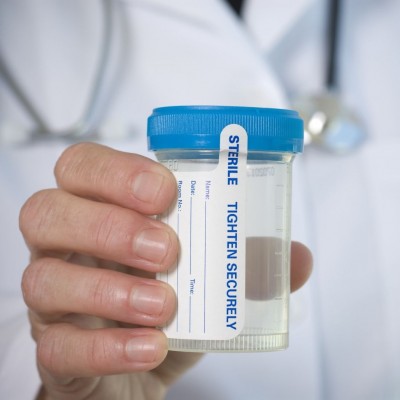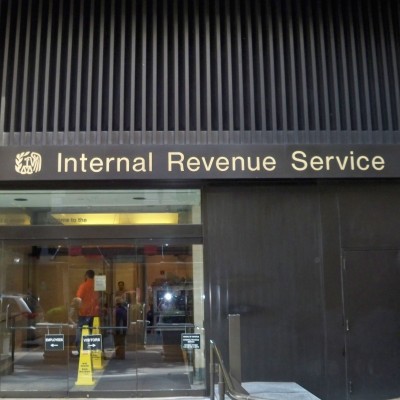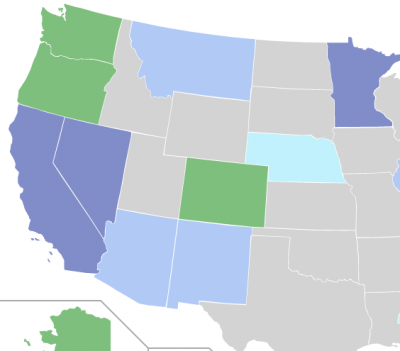Recreational Marijuana Regulation Policy Likely to Be Stricter Than Medical





 Email to a friend
Permalink
Email to a friend
Permalink
Wednesday, May 27, 2015
Melanie Sevcenko, GoLocalPDX Contributor
Oregon is exactly five weeks away from officially legalizing recreational marijuana. But as July 1st looms in the near distance, the hard rules are still waiting in the wings.
The reason being, the state legislature has pulled the focus back to medical marijuana.
A much-debated piece of medical marijuana legislation has bounced from a joint House-Senate Committee to the Senate’s special committee, and now resides on the Senate floor for a vote.
The bill in question would require the Oregon Health Authority to track medical marijuana through the supply chain to curb black market sales.
“At the grower level, it’s completely un-regulated,” said Senator Ginny Burdick (Portland-D), co-chair of the joint legislative committee to implement Measure 91, or recreational marijuana. “Oregon is a great producer of marijuana and much of it is ending up in the black market.”
If passed, the legislation would vastly limit the size of cannabis crops, while allowing cities and counties to ban medical marijuana dispensaries and processors. For sick people this could be a serious roadblock to getting their preferred treatment.
Up to this point, most of the Senate’s attention has gone to tackling the wild west of medical regulations, which means the laws surrounding recreational marijuana have been put on the backburner.
“What we’re trying to do is put some sideboards around the medical market, so it doesn’t end up sabotaging the recreational market,” said Burdick.
But as the clamp down on medical marijuana goes to a vote, the parameters of its recreational use will no doubt get tougher too.
“It was always intended that the recreational rules would be strict,” continued Burdick. “You’re going to have a much more tightly regulated market for recreational than for medical. That was always assumed.”
Traceability, from seed to sale
Earlier this month, the Oregon Liquor Control Commission (OLCC) – which has been given the authority to tax, license and regulate recreational marijuana – organized a Rules Advisory Committee that will make recommendations to implement Measure 91.
The committee will begin meeting in June to prepare for January 2016, when the OLCC will start accepting licenses for commercial marijuana businesses, from seed to sale.
Licenses will not be issued until spring of next year, however, followed by retail outlets opening in the third-quarter of 2016.
The Rules Advisory Committee has been given an autumn deadline to make full recommendations to the OLCC.
“In order to have a regulated recreational marijuana market, you need a traceability program that tracks the marijuana from the time it’s planted until it’s sold to the consumer,” said Tom Towslee, media relations for recreational marijuana at the OLCC. “Whether that takes the form of a formal inspection remains to be seen.”
Last summer, the Oregon Health Authority inspected 58 medical marijuana dispensaries, resulting in two shutdowns. Violations reported across the board included inadequate record keeping, inconsistent labeling, faulty surveillance equipment, and marijuana stored in unsecured areas.
Protocol for inspecting recreational marijuana operations might follow suit.
“In writing the rules for recreational marijuana retail outlets, what is being done with medical marijuana dispensaries provides a good model to start with,” said Towslee.
But similar to the medical market, “it’s not in the dispensary where marijuana is leaking into the black market, it’s at the grower level,” he confirmed.
Advice for commercial marijuana businesses
While the laws are still in gestation, potential applicants for recreational marijuana businesses can begin their research.
According to Amy Margolis, attorney at Emerge Law Group and member of the OLCC’s technical advisory subcommittee, future applicants should closely follow the rule-making process over the next six to nine months
“A potential applicant will certainly need to have their corporate work done by a competent business attorney,” said Margolis. “As well as have their financials in order, including taxes, in case the OLCC requests that information.”
She said the application – whether for a growing or retail operation – should also be submitted by an attorney, or at least checked by one.
And come January, Margolis anticipates a huge rush to apply for both cultivators and dispensary licenses.
“That means professionals will be backed-up in the months to come. Getting the work done early will be a huge benefit,” she said.
Melanie Sevcenko is a journalist for radio, print and online. She reports internationally for BBC World Service and Monocle Radio (M24) in the UK, and for Deutsche Welle in Germany. Melanie also reports for the online news source GoLocalPDX, in Portland, Oregon. Her work has been broadcast by CBC in Canada and the Northwest News Network, and published by Al Jazeera English, Global Post, Pacific Standard, the Toronto Star and USA Today, amongst others.
Related Slideshow: Ten Things to Know About Marijuana Legalization in Oregon
Here are ten things you need to know now that pot is legal in Oregon.

Prev
Next
1) Drug testing will continue
Despite marijuana being as legally permissible as a pint of beer, many of the largest employers of Oregonians will continue to include marijuana in their employee drug screens.
Fred Meyer, one of the largest employers across the state, said the company plans to continue drug testing its Oregon employees regardless of the new law.
Melinda Merrill, Fred Meyer communications director, said the company employs truck drivers, heavy equipment operators and other positions that require drug screening.
“We have to make our employees safe,” Merrill said.
Companies that employ heavy equipment operators are required to buy insurance. Companies that employ workers who operate machinery while simultaneously employing workers who do not are sometimes offered a lower monthly deductible if they test all of their employees across the board, as opposed to only testing a portion.

Prev
Next
2) Your neighborhood dealer may be able to stay in business
The average price for marijuana in Oregon is among the lowest in the nation at sightly over $9 per gram, according to data collected by priceofweed.com.
The economy for recreational pot in Washington failed to gain the footing that was expected by some experts. The notion of Seattle being crowned as the new Amsterdam went up in smoke after consumers saw how the state’s taxes increased the price of marijuana - three joints can run a Washington customer $75, while a gram of the plant’s dried flowers cost around $30.
While the taxation in Oregon isn’t expected to bump prices that high, customers who have grown accustomed to the state’s high quality, low-price buds and hash oils may turn their noses up at even the slightest increase.

Prev
Next
3) Taxes on pot will be different than Washington and Colorado laws
Marijuana sold from licensed vendors in Oregon will carry taxes of $35 per ounce on marijuana flowers, $10 per ounce on all marijuana leaves and trimmings and a $5 tax on all immature plants or clones. The tax rates will be reevaluated every two years and adjusted for inflation. The revenue will be allocated to support government services - 40 percent will support public schools, 20 percent will support law enforcement, 20 percent will support mental health and 5 percent will support the Oregon Health Authority.
State-licensed vendors may still face obstacles, however, when it comes to their federal income taxes. Internal Revenue Section code 280E denies any tax deductions and credits for businesses that traffic any controlled substances that are prohibited under federal law.

Prev
Next
4) You can’t smoke up wherever you please
The law stipulates that use of marijuana, including injection, ingestion and inhalation of the drug is prohibited in public places. In other words, you won't constanty be seeing (or smelling) people lining sidewalks lighting up a joint.

Prev
Next
5) There are also restrictions on growing
No one is permitted to have more than four marijuana plants at a time - considerably less than the 12 plants that Washington residents are allowed to grow. The law also restricts plants being grown in public view.
Sorry, window-sill gardeners.

Prev
Next
6) Marijuana DUIs may be addressed in future legislation
Unlike the Washington law, which included attached regulations concerning driving impairment, Oregon’s law has more room for interpretation.
Driving under the influence of marijuana is classified as a class b traffic violation, which carries a presumptive fine of $260 and is not to exceed maximum fine of $2,000. The Oregon Liquor Control Commission has been tasked with researching the subject of drugged driving and presenting its finding to the Oregon Legislative Assembly no later than January 2017.
After reviewing the OLCC report, the state legislative assembly will decide whether passing more extensive driving regulations will be necessary.

Prev
Next
7) Legalization won't take effect until summer.
Anyone over 21 will be allowed to possess small amounts of marijuana for their personal use from July 1, 2015.

Prev
Next
8) Crossing the Columbia River with a state-licensed spliff will catch you a felony
Although marijuana is simultaneously legal in Oregon and Washington, it's illegal to transfer the drug between the two states.
Measure 91 is only applicable to Oregon and marijuana remains illegal under federal law. Even with a physician’s subscription, marijuana is classified as a Schedule I controlled substance - meaning that anyone transporting it across state lines is prosecutable by federal agencies.

Prev
Next
9) Legalization could mean big money for financial service startups
It’s not just the vendors whose businesses will grow under legalization - companies like Greenpay are expected to expand rapidly once the new legal market gets its footing. Greenpay would allow consumers to instantly purchase marijuana using their smartphones.
Greenpay is a wholly-owned subsidiary of MyEcheck - a publicly traded company whose shares typically trade for less than ten cents on the New York Stock Exchange. With legalization efforts gaining momentum around the country, companies providing auxiliary services for the marijuana industry may create an economic boom.
Related Articles
Enjoy this post? Share it with others.





 Email to a friend
Permalink
Email to a friend
Permalink



























 Delivered Free Every
Delivered Free Every
Follow us on Pinterest Google + Facebook Twitter See It Read It